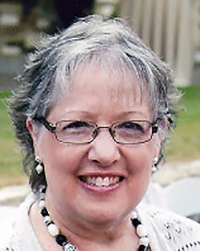

by Aleta Samford
Synopsis: Aleta focuses on the central purpose of a lesson—passing on our spiritual heritage to the next generation. God has provided His word to help us instruct and protect them.
"We come now to the lesson, the process to be mastered, the problem to be solved. This is where the teacher must pass on to the pupils the recorded experience of the race. (The lesson) must be such as to inspire these pupils with principles that shall be active forces in their lives and at the same time furnish them with an instrument of research and further study. This is the very heart of the work of the teacher, as well as the culmination and the fruit, of all the rest" (Gregory 67).
The lesson is mastered in the gathering of knowledge, the developing of understanding, and the acquiring of wisdom. This is where the teacher "passes on to the pupils the recorded experience of the race." This is where parents and teachers of God's word pass on the heritage and salvation we have in the Lord, and as a result, is where we can equip and prepare them for their own journey.
The Law of the Lesson tells us how to do this effectively. It states, "The truth to be taught must be learned through truth already known." It may also be worded, "Through truth already known, the truth to be taught may be learned." To help with what this means, I want to tell you about a challenge our family faced when our son was 11-years-old.
One morning before school, Jacob told me that a new philosophy class was beginning in his 5th-grade class, and he would need to arrive earlier each day for a while. A red flag went up immediately, because we parents had not been told that there would be any subjects added to the curriculum, much less a philosophy class. I had to investigate.
When I met with Jacob's teacher, she said, "This is a new program we're implementing to give students the opportunity to practice thinking. They'll read about students their own age who are thinking about how to handle different situations. Then, we'll write all their conclusions on the board and discuss them as a group." As if to make me feel better, she then said, "Don't worry, there are no wrong answers!"
She let me take a copy of the material home, and after reading it, my husband and I were convinced that the class would not benefit our son. The students in the scenarios experimented with different ways to think about things, but thrown in the middle of their discussions were personal situations that arose, like racism, questioning God, the Bible and one's beliefs, considering man on a level with animals, when is lying acceptable, and when is it okay to defy your parents. Red flags continued to fly. These grown-up issues were going to be subjected to and analyzed by the immature minds of children with the assurance that there were no wrong answers.
When I returned the material, I told the teacher that the idea of no wrong answers regarding these social and moral issues was a concern, because at home we taught Jacob that some things are wrong. I kindly told her that he'd be arriving at the normal time each day, and if the class was still in progress, we'd like for him to be allowed to do extra work in a basic subject.
Regarding moral issues, there are wrong answers, and there are right answers, and this distinction is clearly made in God's word. Jesus assures us of this, saying, "You shall know the truth, and the truth shall set you free" (John 8:32).
The highest standard in determining answers in the philosophy class was going to be the students themselves. In each situation, they would be encouraged to draw and state their own conclusions based on whatever knowledge they had up to that point, but not upon God's word. We looked forward to years of imparting truths to Jacob at the rate a child could receive them, and upon that, teaching further truths. This is the common sense found in the Law of the Lesson.
My next article will continue to build and explain how we can implement the Law of the Lesson in our homes and our classrooms.
Author Bio: Aleta is the wife of Gene Samford who preaches for the church that meets in Kemp, TX. She has taught Bible classes for 42 years and, to help other women join the ranks, presents a series of lessons based on God's word, The Seven Laws of Teaching, and her own experiences. She can be reached at aletas10@sbcglobal.net.
